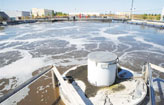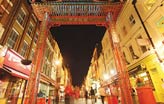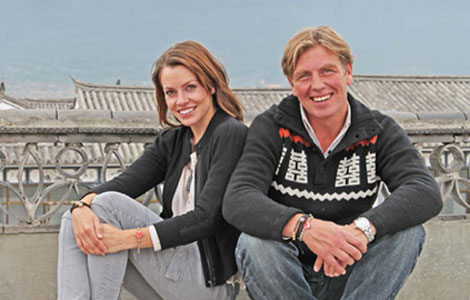Diplomatic and Military Affairs
Nuclear safety high on G8 leaders' agenda
Updated: 2011-05-28 11:25
By Zhang Chunyan and Zhang Haizhou (China Daily)
DEAUVILLE, France - G8 leaders have reached a consensus that more stringent international rules on nuclear safety are needed after the recent nuclear plant crisis in Japan, French President Nicolas Sarkozy said on Thursday.
"We all wish to obtain high standards of regulation on nuclear safety that will apply to all countries involved in civilian nuclear energy," Sarkozy said at a press conference at the G8 summit in French seaside resort of Deauville.
| ||||
Sarkozy said there is no alternative to nuclear energy and insisted that safety, not cost, had to drive projects. "As far as nuclear power is concerned, the first criterion is of safety," he added.
France is the world's most nuclear dependent country, with 58 reactors that supply 80 percent of its power needs.
Other heads at the summit also attached huge importance on nuclear safety. European Commission President Jose Manuel Barroso called for worldwide stress tests on nuclear power plants.
"When we talk nuclear, we talk global. We want nuclear stress tests to go beyond Europe," Barroso told reporters.
European nuclear watchdogs agreed on Wednesday to conduct stress tests on the resilience of the region's 143 reactors against earthquakes and other natural disasters.
"I will push for stronger global safety standards," Barroso said, referring to a revision of the International Atomic Energy Agency's (IAEA) nuclear safety convention.
Japanese Prime Minister Naoto Kan told G8 leaders that Japan wants to host a global meeting on nuclear safety with the IAEA late next year.
Struggling to rebuild disaster-struck areas, Japan has also drawn up a timetable in which it aims to stabilize the Fukushima Daiichi nuclear reactors by early next year.
An international team of IAEA specialists is on site at present to inspect the Fukushima Daiichi nuclear plant.
"We need better cooperation of all nuclear security organizations in the world," said German Chancellor Angela Merkel, who froze Germany's civilian nuclear energy plan after the Japan crisis.
Russia, a G8 member, said it was likely to win an agreement from its G8 partners for its proposal for a new legally-binding state responsibility over a nuclear power operator, in case of a nuclear accident.
"The likelihood is very high because there is simply no alternative to that," Nikolai Spassky, deputy head of state nuclear body Rosatom, said at a briefing on Thursday.
Spassky said that France and the US supported Russia's proposals. However, Germany and Italy did not share the Russian approach.
Diplomats at the IAEA noted that its member states are divided over the issue of mandatory international safety rules, and whether an international body such as the IAEA should be given the power to enforce safety rules.
E-paper

Tapping into the future
Foreign companies are investing in China's water industry as many predict a growing profit margin.
Headhunters ride on growth
Commercial property rides wave
Learning from the past
Specials

Cuisine central
London's Chinatown is helping diners appreciate full palate of Chinese food

Tying the knot
Danish couple's high-end macrame export business takes off in the mountains of Yunnan.

Truly a super woman
Li Yuchun first came to prominence in 2005 as the Super Girl winner, and since then has become an international star.


